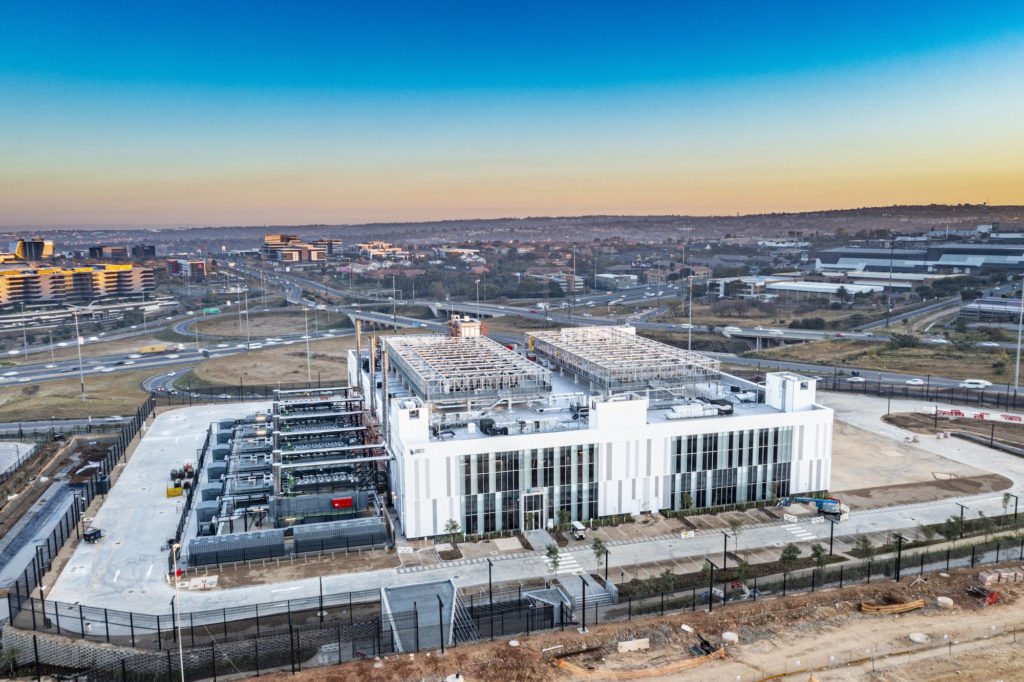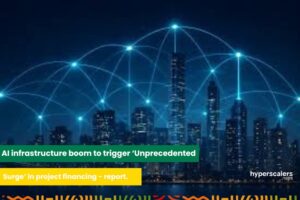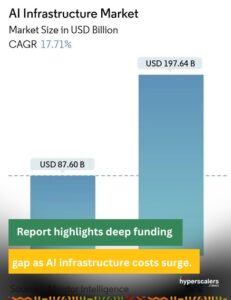Data centers are the backbone of today’s modern economies, facilitating the storage, processing, and distribution of vast amounts of information. From cloud computing and e-commerce to social media and artificial intelligence, virtually every aspect of modern life relies on the storage and processing infrastructure provided by data centers.
Despite its strategic importance, emerging continents still struggle to adequately develop and deploy data center infrastructure to meet the evolving demands of the digital age. Africa, in particular, faces significant challenges in bridging the gap between its current digital infrastructure and the needs of its rapidly growing population and expanding economy.
While regions like North America, Europe, and Asia have experienced a surge in data center development, Africa still lags, facing significant challenges in harnessing the full potential of digital infrastructure. Despite a recent boom in data center construction across the continent, Africa’s data center capacity remains dwarfed by other continents, highlighting the need for concerted efforts to accelerate growth in this critical sector.
North America reigns supreme as the world’s foremost hub for data center capacity, boasting a commanding total power consumption of 8091 Megawatts. The continent’s dominance in this sector is underscored by a robust network of data center hubs spread across key cities.
Salt Lake City, USA, leads the charge with 203 Megawatts, closely followed by Los Angeles, USA, with 206 Megawatts. Other notable contributors include Toronto, Canada (267 Megawatts); Atlanta, USA (360 Megawatts); and Portland, USA (382 Megawatts). However, the crown jewel of North America’s data center landscape lies in Northern Virginia, USA, with a staggering 2,552 Megawatts, solidifying its status as a global powerhouse in data infrastructure.
Asia emerges as a strong contender for data center supremacy, boasting a total power consumption of 5633 Megawatts. Beijing, China, leads the charge with an impressive 1799 Megawatts, closely followed by Singapore with 876 Megawatts.
In Europe, the quest for data dominance is fierce, with a total power consumption of 3,143 Megawatts. Leading the charge is Frankfurt, Germany, with an impressive 864 Megawatts, followed closely by London, UK, with 1053 Megawatts. Other prominent European data center hubs include Dublin, Ireland (304 Megawatts); Paris, France (391 Megawatts); and Amsterdam, Netherlands (531 Megawatts). Together, these cities form the backbone of Europe’s digital infrastructure, supporting a wide array of industries and applications.
Surprisingly, even Oceania, the world’s smallest continent in terms of land area, outpaces Africa in data center capacity. Sydney, Australia, alone boasts 667 Megawatts of power consumption, serving its population of 26 million.
This stark contrast with Africa’s less than 300 Megawatts serving 1.4 billion people highlights the pressing need for Africa to ramp up its efforts in developing robust data infrastructure to keep pace with global digital trends and harness the transformative power of technology for economic development and social progress.
However, Africa’s data center capacity is expected to increase significantly. Rack Centre is building about 12 MW. Open Access Data Center is building 24 MW in two stages of 12 MW each. Airtel has announced a 38 MW data center, and Digital Realty has also announced its intent for a 10 capacity in South Africa.
Also in South Africa, the African Data Centre is completing a 20 MW data center in Cape Town. The company will also expand its existing Johannesburg data centers from 30MW to 100MW. Raxio Data Centres plans to launch a total of 23 MW data centers in Angola, DR, Ivory Coast, Tanzania, Ethiopia and Mozambique and Vantage Data Centers is expecting a 20MW facility in Johannesburg
Within the next 24 months, the megawatt capacity of Africa’s data centers is expected to double to about 700 MW or more, especially as more hyperscalers come and take a stake.
Investors are noticing the growing demand for additional data centers in Africa. Investment into the market is projected to have a compound annual growth rate (CAGR) of approximately 15% from 2020 to 2026. In 2020, the data center market size in terms of investment was valued at US$2 billion, and it is anticipated to reach $5 billion by 2026.
The continent will continue to hold immense potential for data center growth, driven by the growing digital economy, increasing demand for online services, and the growth of enterprise services. As the continent continues to embrace digital transformation, data centers will play a pivotal role in supporting Africa’s economic development and technological advancement. These facilities will serve as the backbone of Africa’s digital infrastructure, enabling businesses, governments, and individuals to store, process, and distribute vast amounts of data efficiently and securely.
They will also facilitate the adoption of emerging technologies such as artificial intelligence, the Internet of Things (IoT), and scalable cloud infrastructure, unlock new opportunities for innovation and growth and allow Africa play a vantage role in addressing pressing challenges in areas such as healthcare, agriculture, education, and infrastructure, driving sustainable development and improving quality of life for millions of people.
The potential of data centers for Africa are huge, asserts Tunde Coker, CEO of Open Access Data Center. “Research has shown that for every $10 million you put into data centers, the actual systemic benefit in the environment could be anything 50 times to 100 times more,” he noted.
“Now if you say there’s $100 million being spent on a data center, say for 10 megawatts, that means you can get a billion-dollar impact on the economy,” he concluded.
Xalam Analytics, a digital infrastructure consulting firm, asserts that Africa’s commercial hosting capacity doubles every three years, evidenced by the 70 new data centers built in Africa between 2017 and 2022. But if Africa is to derive significant value from data centers, it needs more. Paul-Francois Cattier, Managing Director at the Africa Data Centres Association opines that Africa needs 700 new data centers within the decade.
Michael Nahon, CEO at Onix Data Centers opines that the African data center market will experience a 150% increase in valuation, from US$2 billion a year now to $5 billion by 2026. This growth will be driven by financial institutions, governments, corporates, cloud service providers and hyperscalers, such as Netflix and Facebook, demanding additional facilities.
To bridge the gap between potential and outcomes, Africa must invest in critical infrastructure, which includes reliable power supply and high-speed internet connectivity, essential for data center development. While the continent may boast sufficient subsea cables, there remains a pressing need for increased redundancy and significant improvements in metro and last-mile access. Collaboration between governments and private sector stakeholders is imperative to prioritize and implement these crucial investments, to foster an enabling environment for the growth of data infrastructure across Africa.
Governments must also streamline regulatory processes, to foster a conducive regulatory environment that welcomes investment in the data center sector. Africa needs all the data centers: AI, enterprise, cloud and edge and applicable laws must welcome operators that improve service delivery while aligning with data sovereignty laws. We must encourage clear and transparent regulatory frameworks that provide certainty to investors, facilitating the deployment of data infrastructure.
To scale up data centers especially for critical operations, governments can introduce incentive programs such as tax incentives, subsidies, and reduced tariffs to attract investment in data center construction. Training an army of digital workers to bridge the skill gap is essential and we must invest in education and training programs focused on data center management and IT infrastructure. Nigeria has a 3MTT program that can be scaled in other countries to include data center, cloud and connectivity professionals.
To catalyze the expansion of data centers, particularly for critical operations, governments can introduce various incentive programs, such as tax incentives, subsidies, and reduced tariffs, aimed at attracting investment in data center construction. Moreover, addressing the skill gap is essential for the sustainable growth of the sector. Therefore, significant investments must be made in education and training programs tailored to data center management and IT infrastructure.
Leveraging existing initiatives like Nigeria’s 3MTT program, which focuses on training professionals for the technology sector, including data center, cloud, and connectivity specialists, can serve as a blueprint for scaling similar programs across other African countries. In addition, access to credit facilities will boost the expansion of data center operators across Africa. Operators will be able to upgrade their facilities, expand their capacity, improve innovation and enhance their service offerings, ultimately contributing to the overall development of the data center ecosystem in Africa.
Africa’s data center landscape is on the cusp of a significant transformation. While the continent currently lags behind, a surge in investment, infrastructure development, and skilled workforce training point can unlock the transformative power of data centers and other digital infrastructure. Africa must work collaboratively, to seize this digital opportunity and bridge the data center gap, ensuring a future powered by efficient, secure, and accessible digital infrastructure for all.





